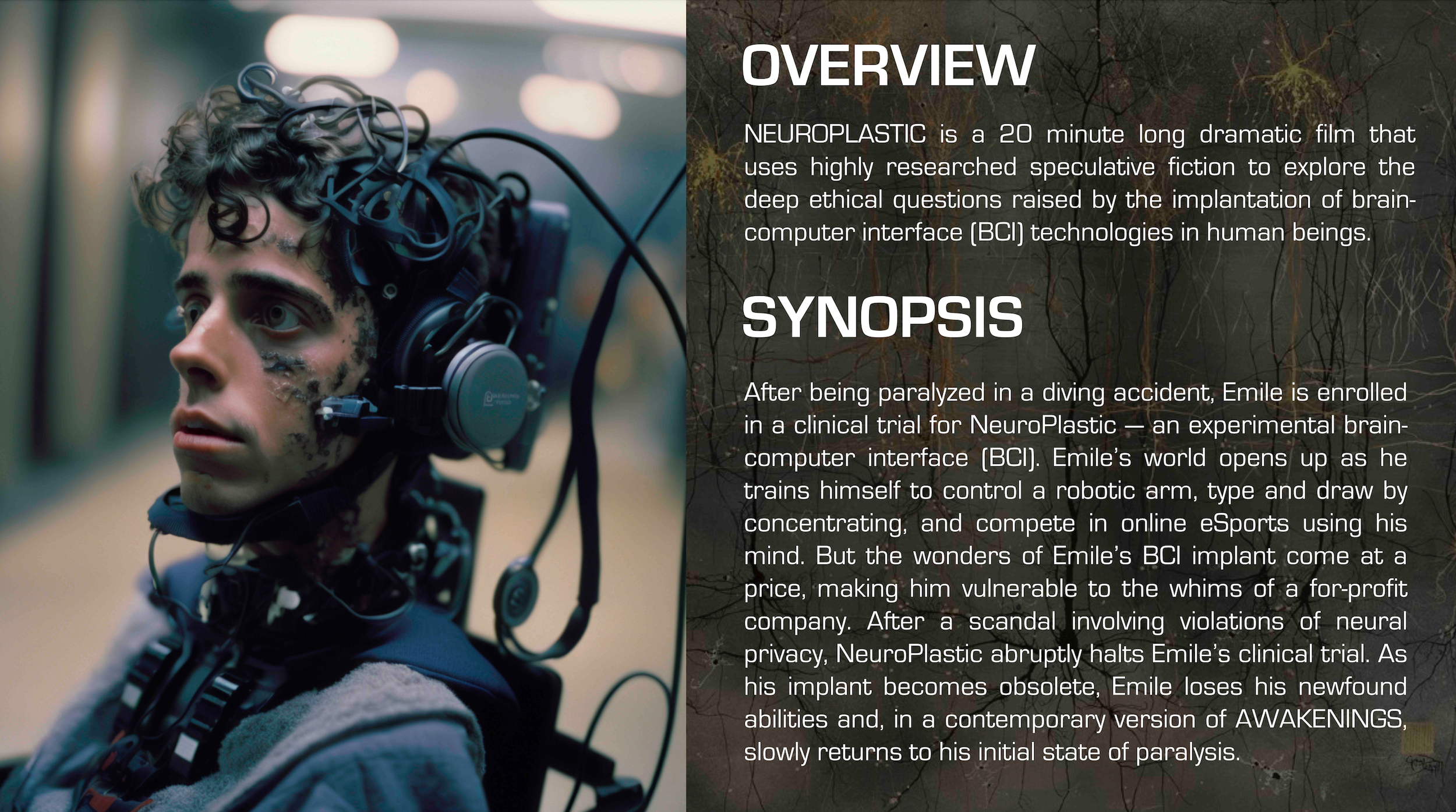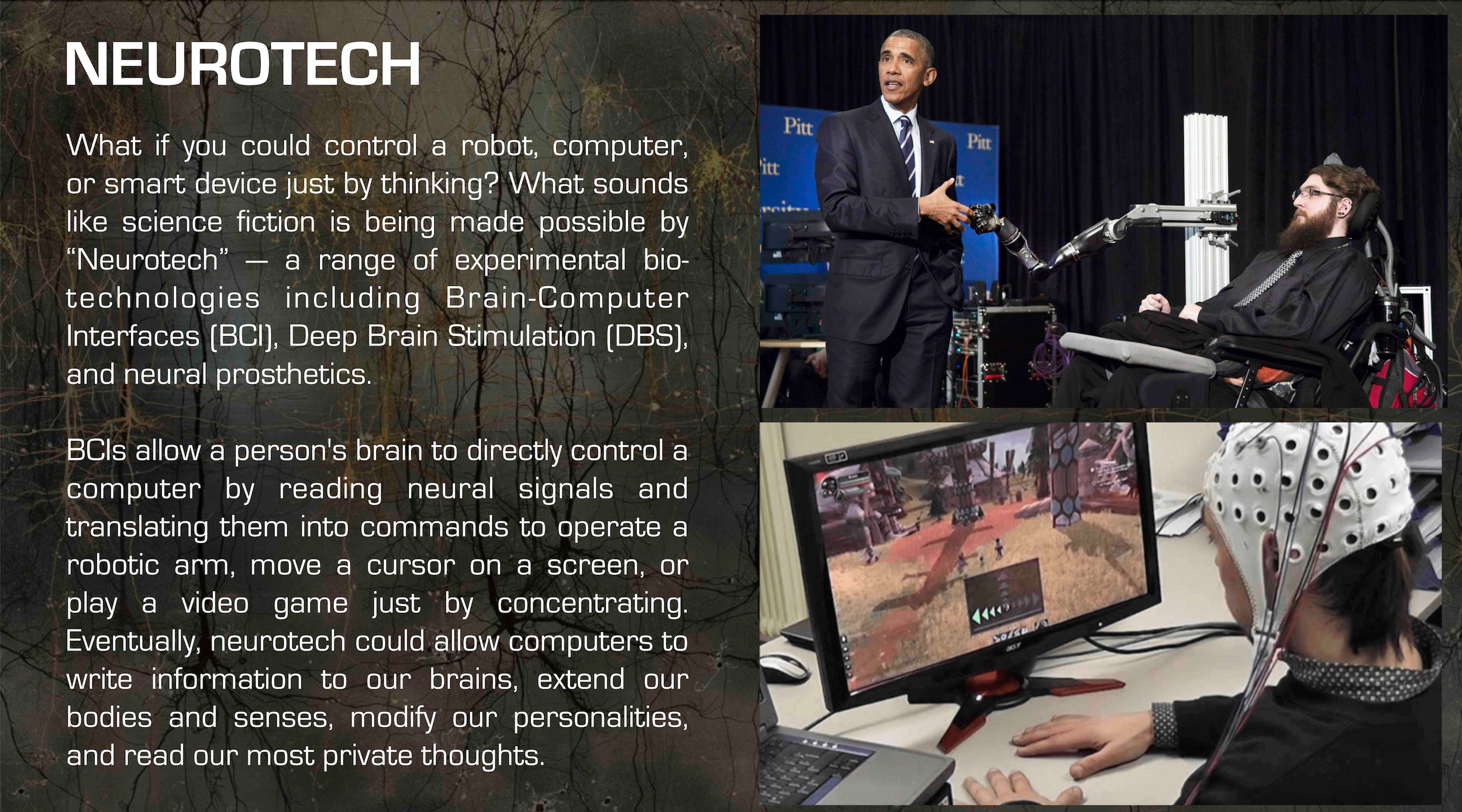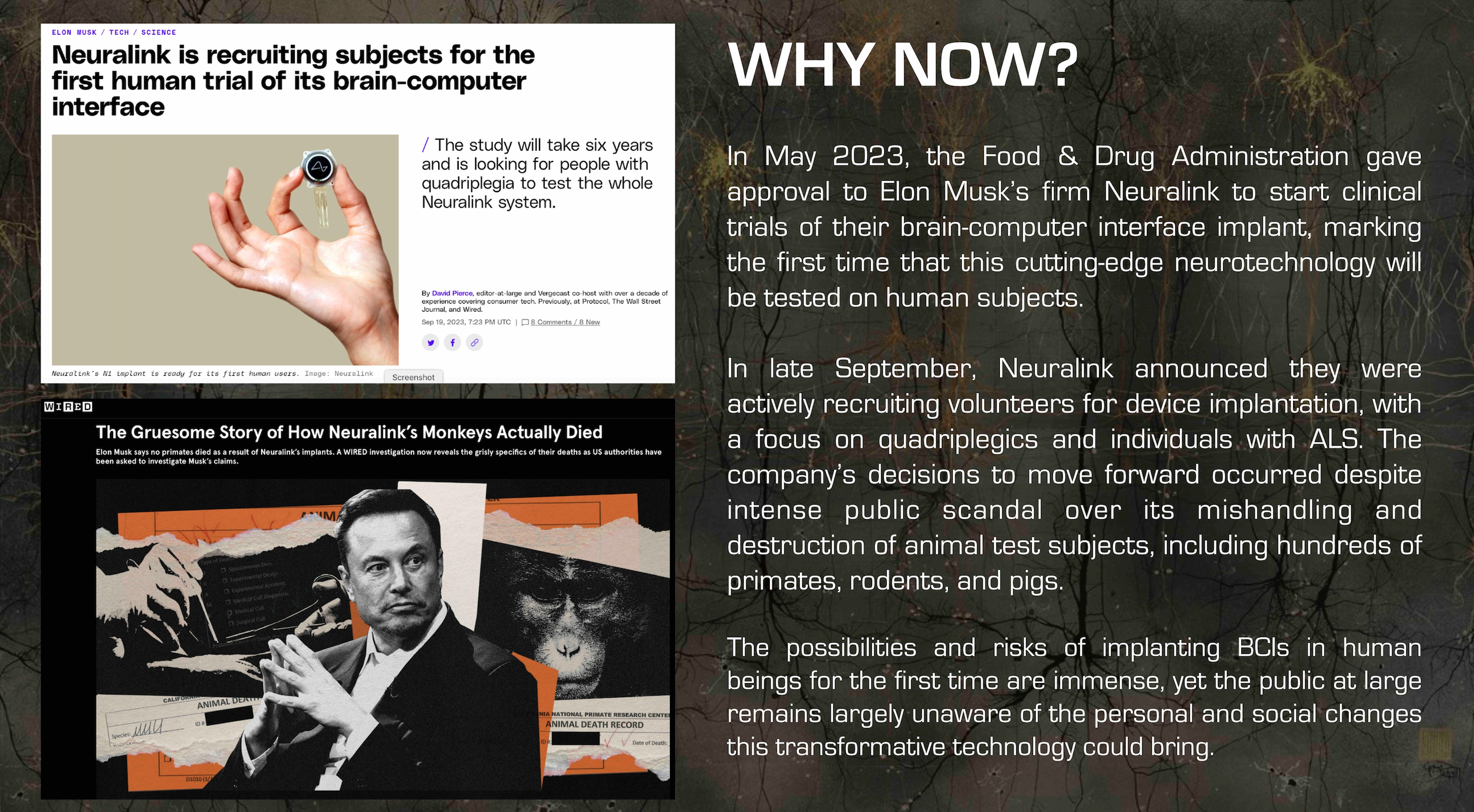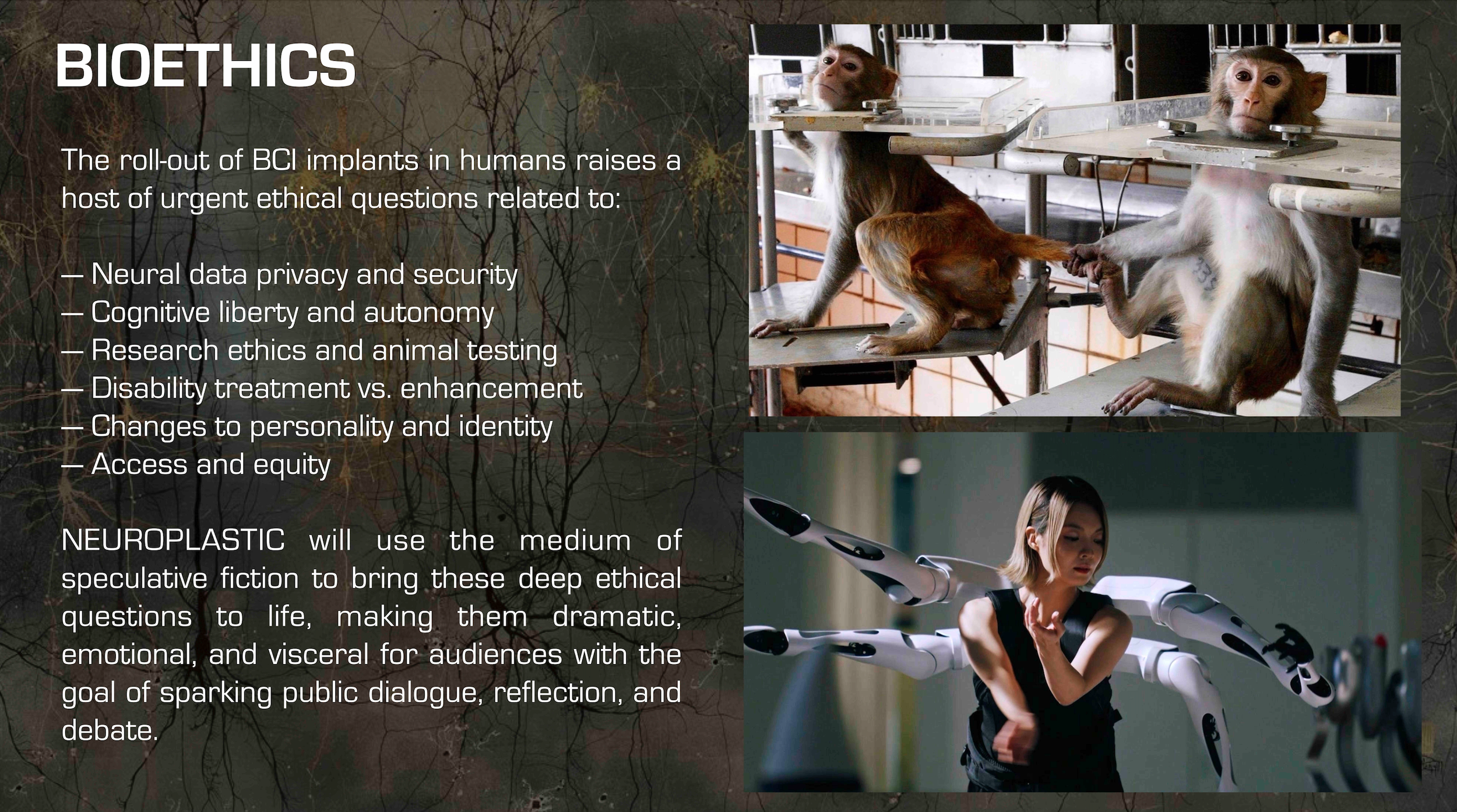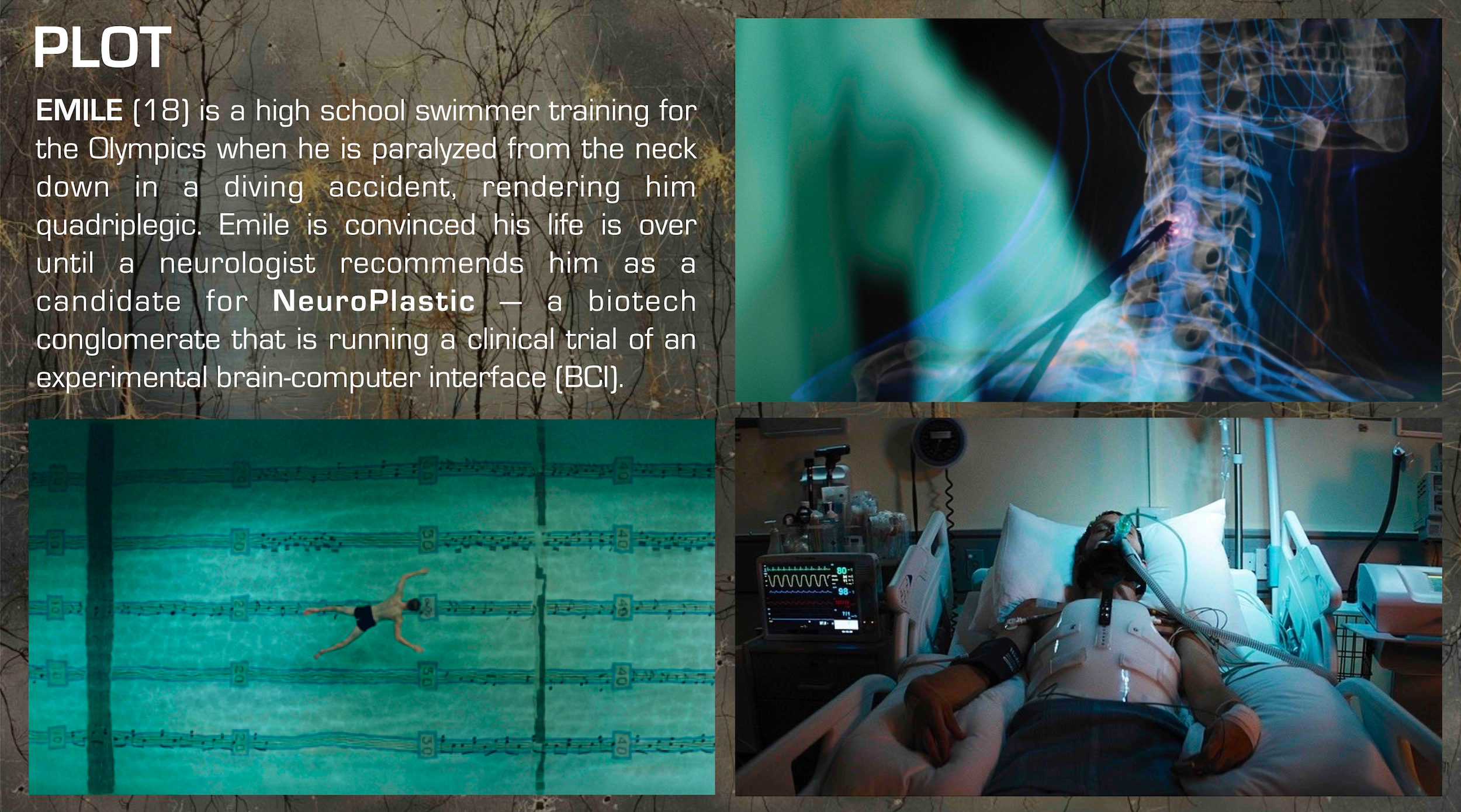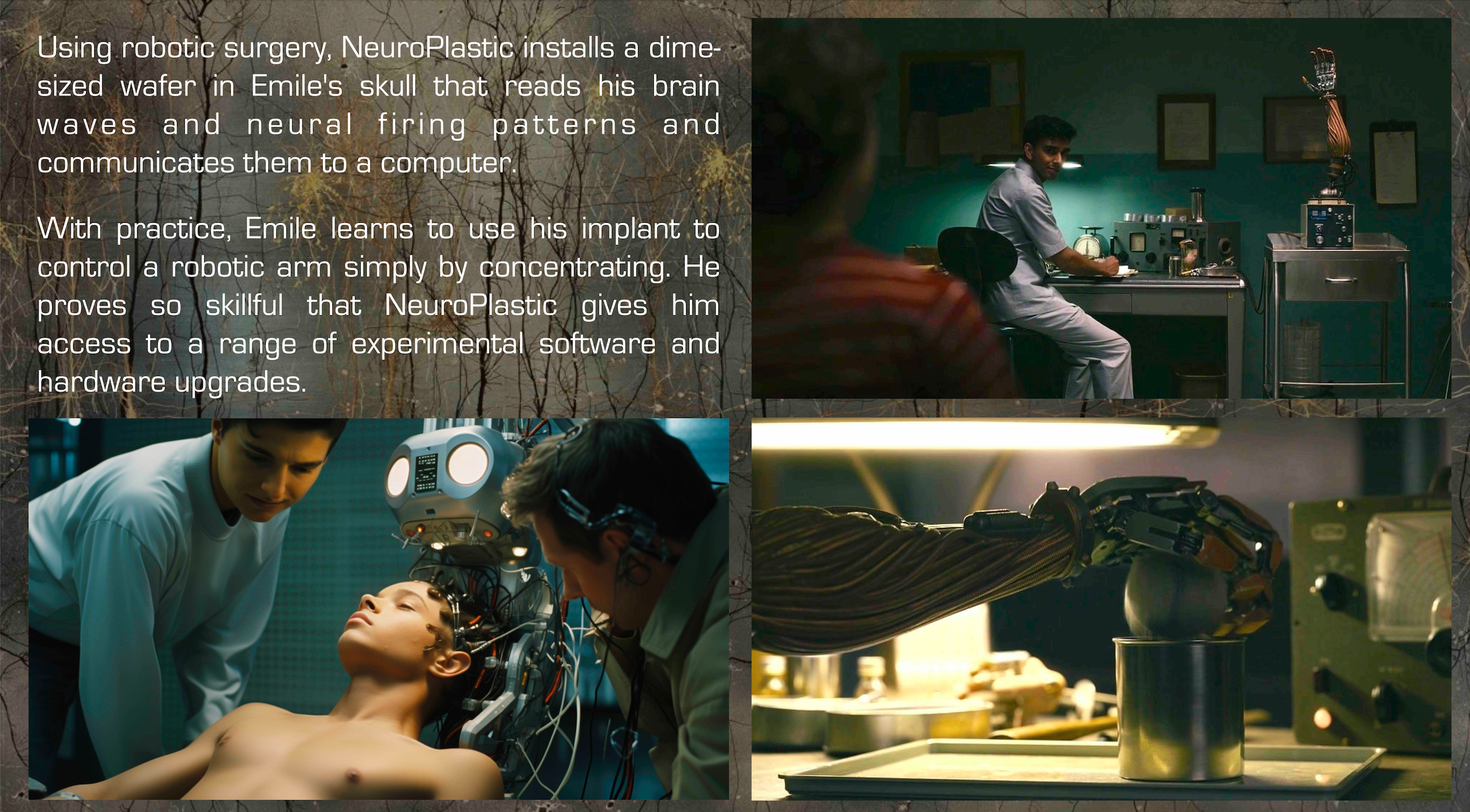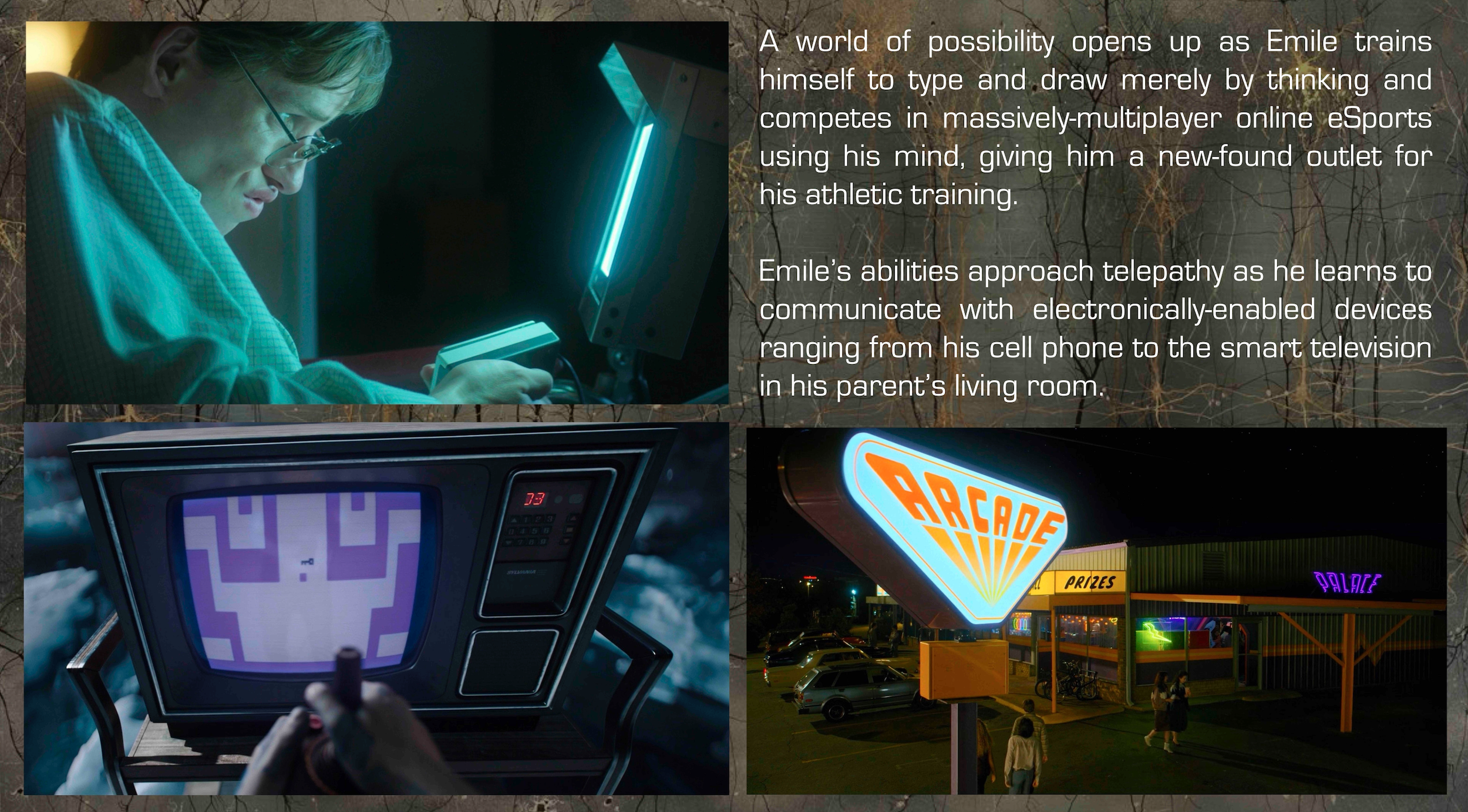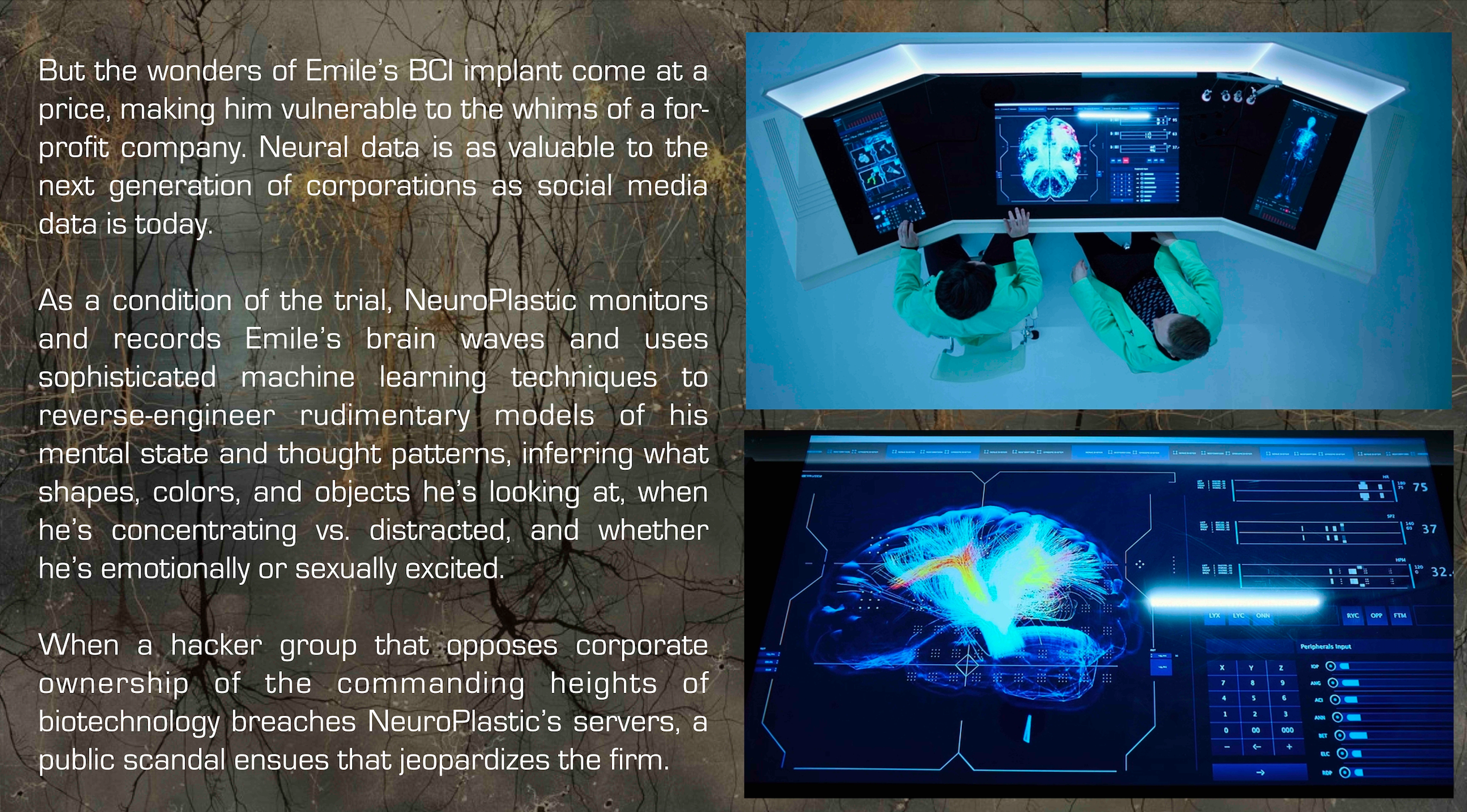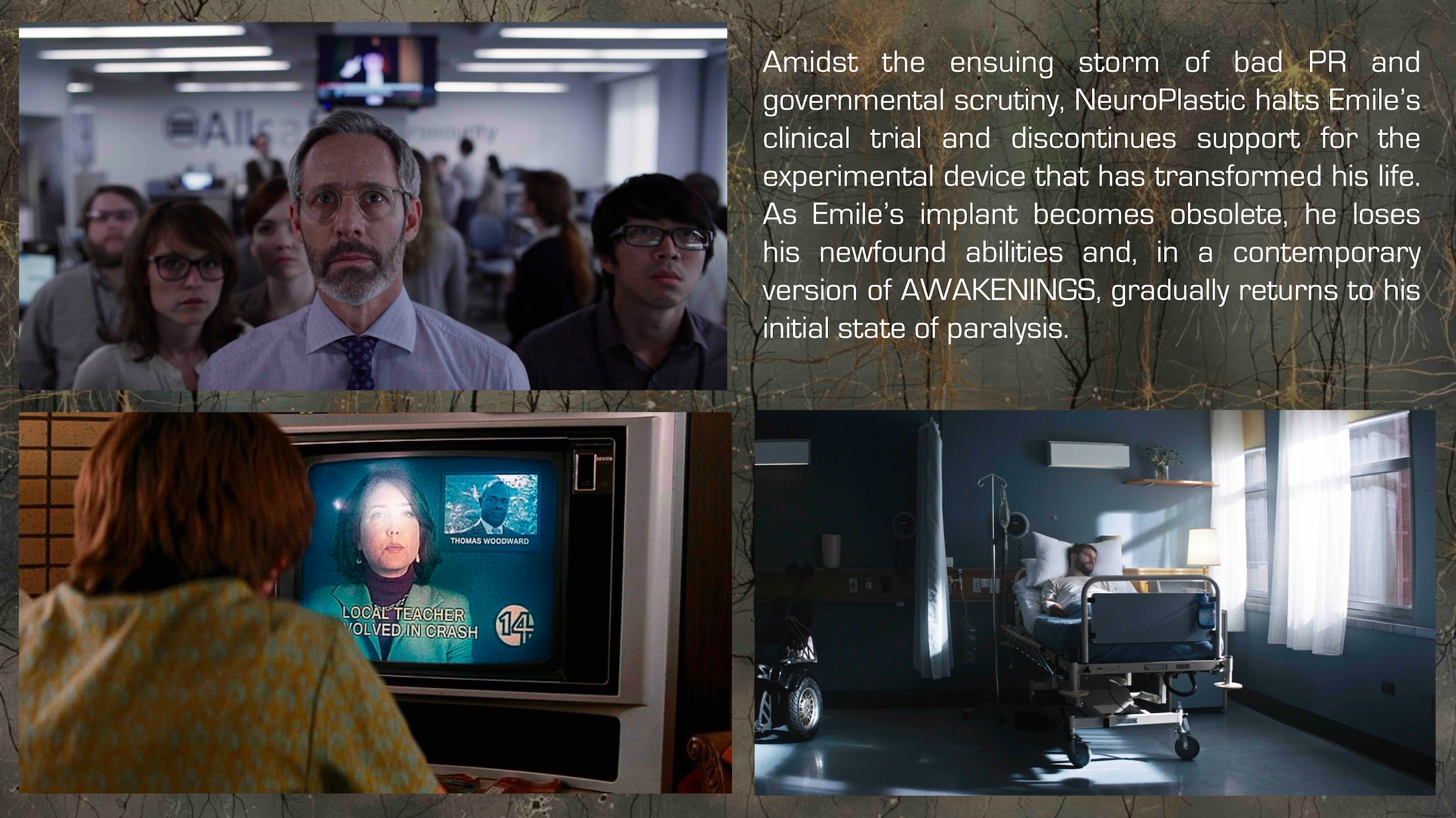NEUROPLASTIC
Written & Directed by Graham Sack
Supported by the Dracopoulos-Bloomberg iDeas Lab and the Berman Institute of Bioethics at Johns Hopkins University
Executive Produced by Dr. Lauren Arora-Hutchinson (iDeas Lab Director) & Dr. Jeffrey Kahn (Berman Institute Director)
Creative Produced by Toni Dove
Science & Ethics Advising by Dr. Debra Mathews
Production Scheduled for Spring 2024
NEUROPLASTIC is a 20 minute long dramatic film that uses highly researched speculative fiction to explore the deep ethical questions raised by the implantation of brain-computer interface (BCI) technologies in human beings. BCIs allow a person's brain to directly control a computer by reading neural signals and translating them into commands to operate a robotic arm, move a cursor on a screen, or play a video game just by concentrating. Eventually, “neurotech” could allow computers to write information to our brains, extend our bodies and senses, modify our personalities, and read our most private thoughts. The possibilities and risks are immense, yet the public at large remains largely unaware. NEUROPLASTIC uses the medium of speculative fiction to bring these issues to life, making them dramatic, emotional, and visceral with the goal of sparking public dialogue and reflection.
Plot: After being paralyzed in a diving accident, Emile (18) is enrolled in a clinical trial for NeuroPlastic — an experimental brain-computer interface (BCI). Emile’s world opens up as he trains himself to control a robotic arm, type and draw by concentrating, and compete in online eSports using his mind. But the wonders of Emile’s BCI implant come at a price, making him vulnerable to the whims of a for-profit company. After a scandal involving violations of neural privacy, NeuroPlastic abruptly halts Emile’s clinical trial. As his implant becomes obsolete, Emile loses his newfound abilities and, in a contemporary version of AWAKENINGS, slowly returns to his initial state of paralysis.



